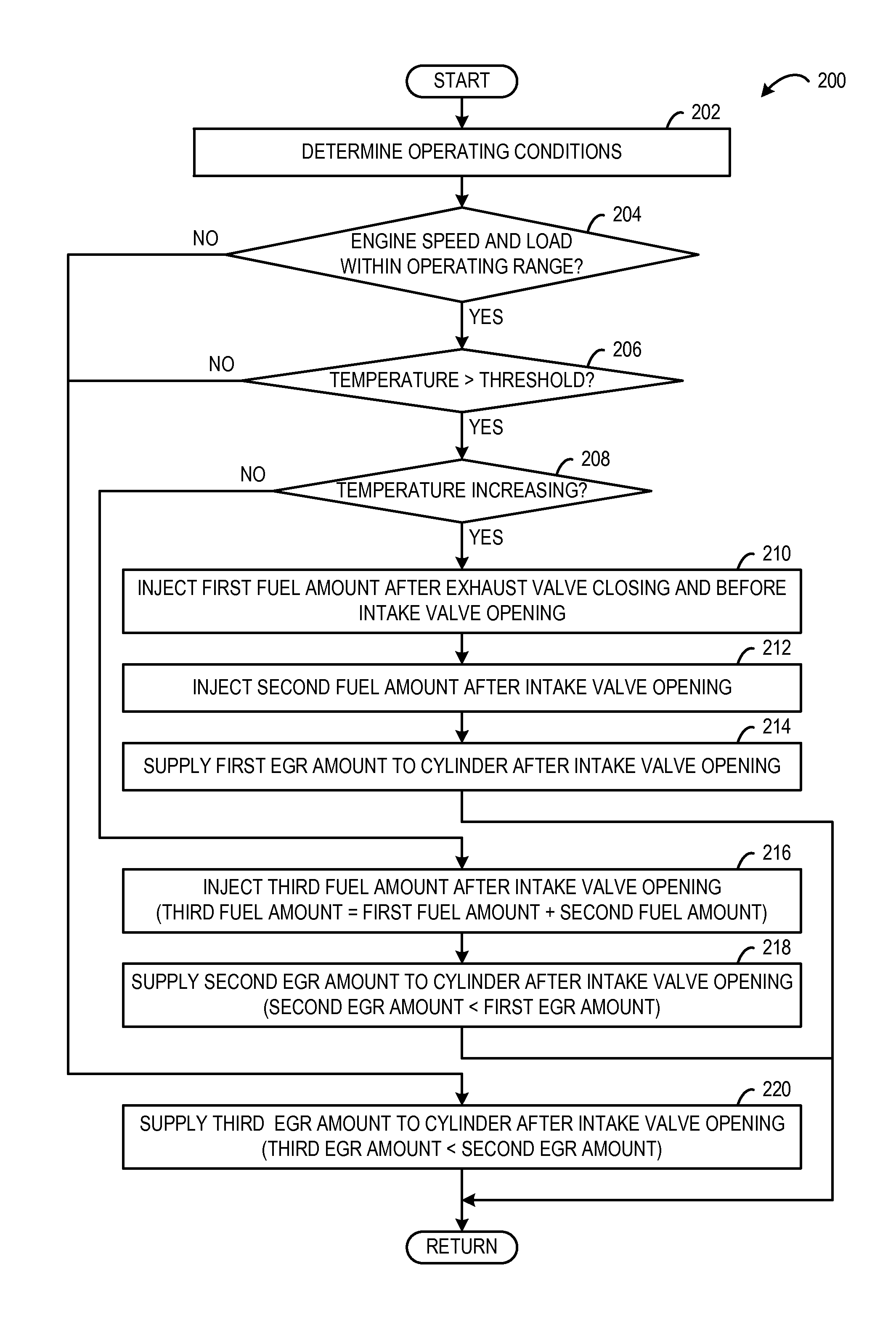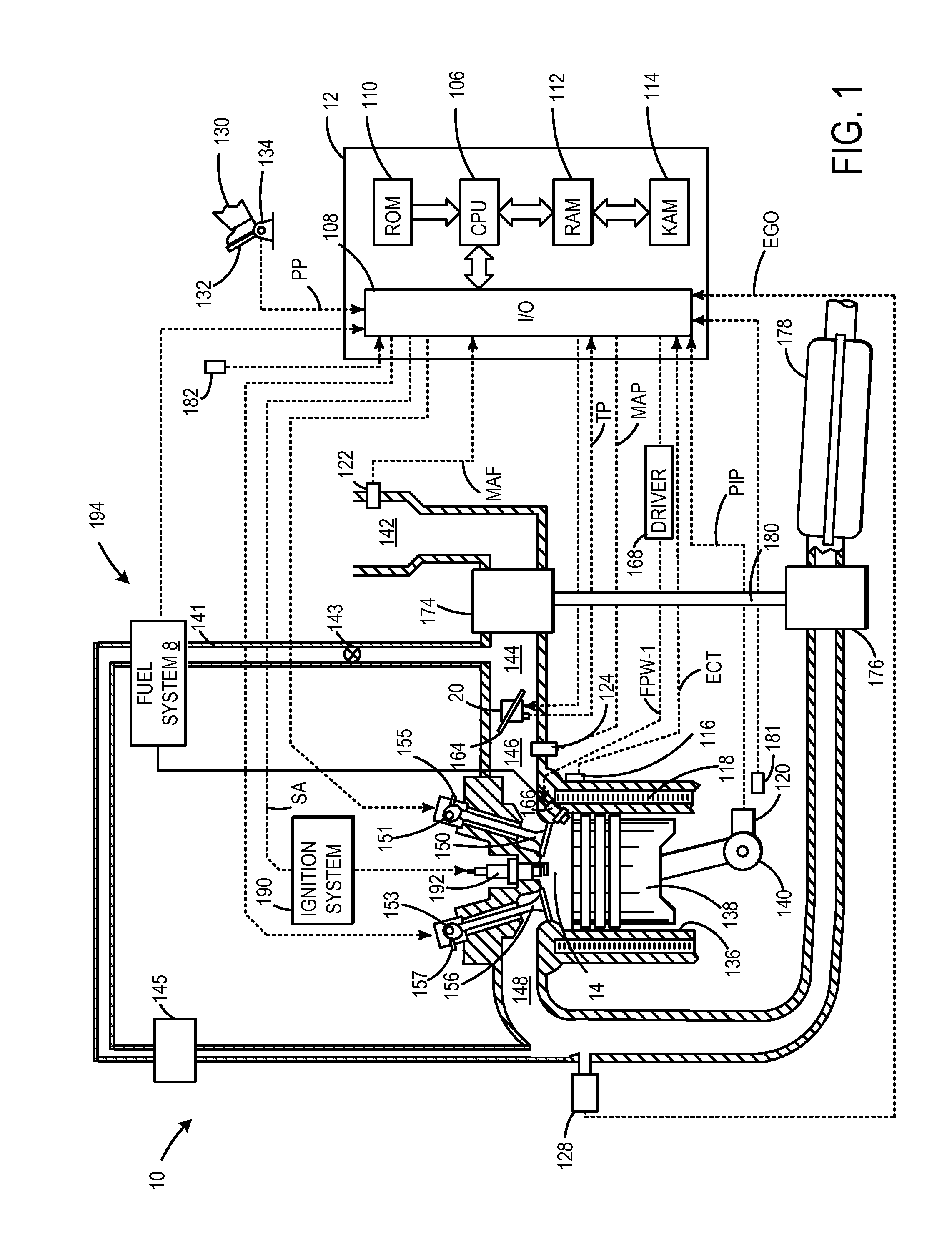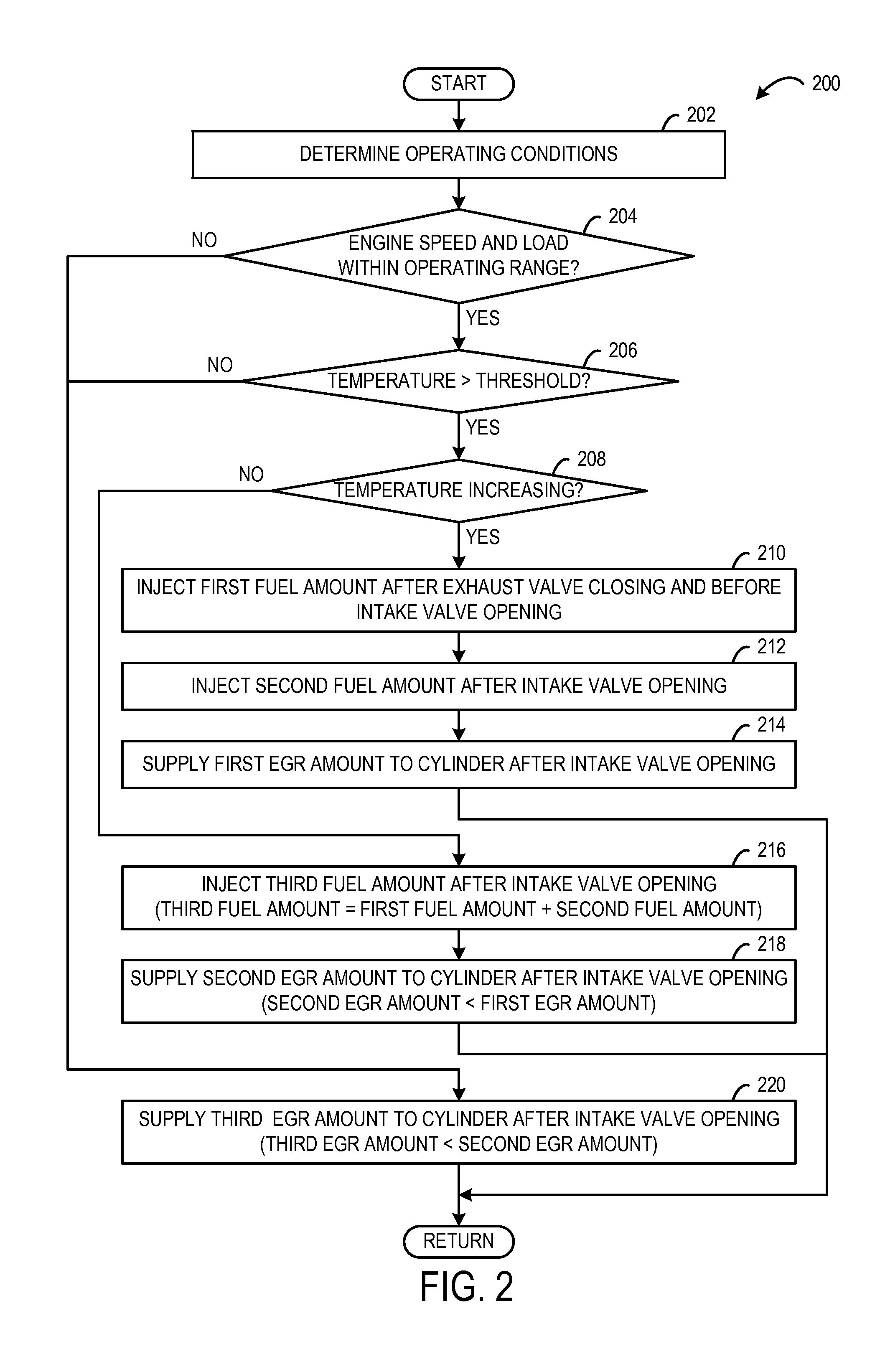Approach for controlling exhaust gas recirculation
a technology of exhaust gas and recirculation, which is applied in the direction of electrical control, machines/engines, output power, etc., can solve the problems of degrading combustion stability and limited amount of egr provided to the engine cylinder, so as to reduce the throttling of the engine, reduce the nox emission, and reduce the loss of pumping
- Summary
- Abstract
- Description
- Claims
- Application Information
AI Technical Summary
Benefits of technology
Problems solved by technology
Method used
Image
Examples
Embodiment Construction
[0016]The present description is related to controlling an engine to operate with a higher EGR concentration while maintain combustion stability, under some conditions. In particular, the approach includes injecting a small amount of fuel near the time of exhaust valve closing and before intake valve opening in what may be referred to as negative valve overlap followed by injection a second larger amount for combustion. When the first injected fuel amount mixes with residual exhaust gas in the hot cylinder, at least some of the fuel is converted into chemical radicals that act as a catalyst for combustion during the following combustion cycle. In other words, the chemical radicals created by the initial injection during negative valve overlap facilitate stable combustion even as an EGR concentration in the cylinder is increased. In one example, this control approach may be applied to a direct-injection, spark-ignition engine including an EGR system as shown in FIG. 1. However, the p...
PUM
 Login to View More
Login to View More Abstract
Description
Claims
Application Information
 Login to View More
Login to View More - R&D
- Intellectual Property
- Life Sciences
- Materials
- Tech Scout
- Unparalleled Data Quality
- Higher Quality Content
- 60% Fewer Hallucinations
Browse by: Latest US Patents, China's latest patents, Technical Efficacy Thesaurus, Application Domain, Technology Topic, Popular Technical Reports.
© 2025 PatSnap. All rights reserved.Legal|Privacy policy|Modern Slavery Act Transparency Statement|Sitemap|About US| Contact US: help@patsnap.com



